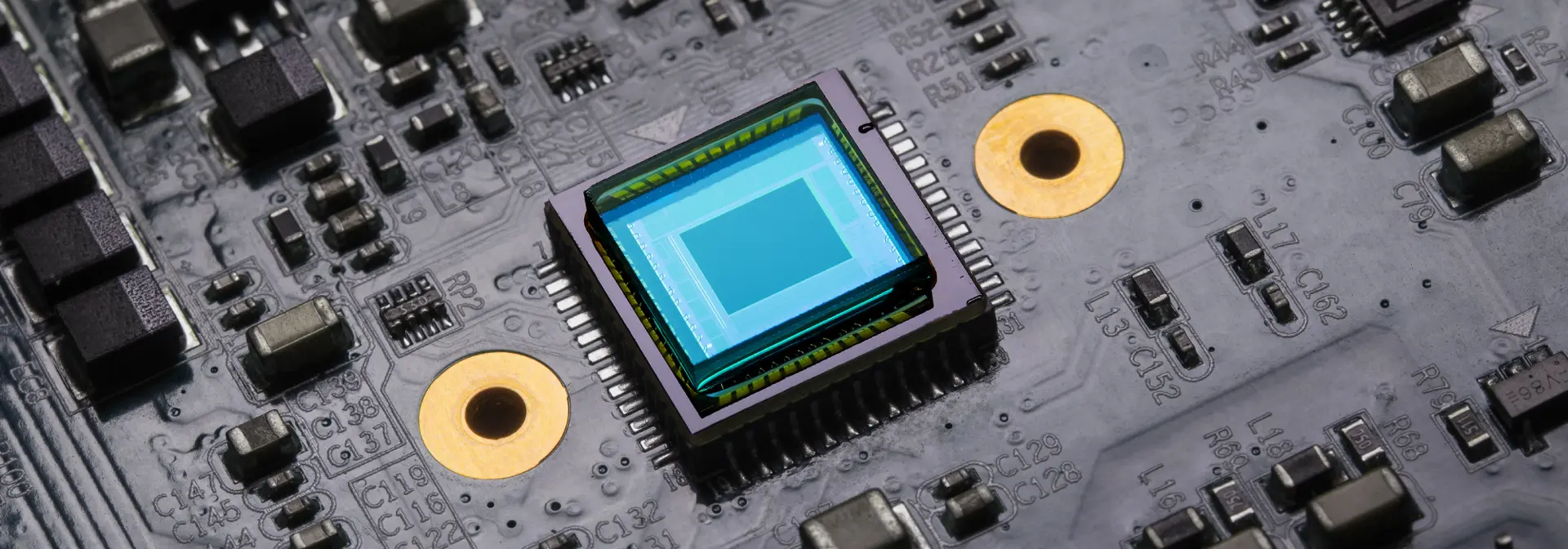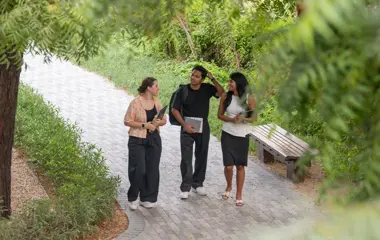Key information
The Institute of Sensors, Signals and System's (ISSS) vision is to provide a continuum of expertise in electronic systems ranging from sensors and system design, manufacturing and test and the processing of information used and generated by these systems.
- Funding
- Self-funded
- School
- Engineering and Physical Sciences
- Location
- Edinburgh
- Award
- PhD
- Delivery type
- Full-time
- Start date
- Varied
As a research student here you will benefit from opportunities to collaborate with renowned research centres in the UK, Europe and the US through focused projects and exchange agreements. You might also be part of the two Centres of Doctoral Training in Robotics and Autonomous Systems, and in Embedded Intelligence.
You will also become a member of the Edinburgh Research Partnership, giving you access to a wide range of expertise and support across two universities.
We offer a stimulating international environment with all our programmes linked to the Institute's active research groups: Signal and Image Processing (SIP), Ocean System Laboratory (OSL), Robotics and Autonomous Systems, Microsystems (MISEC), Microwave Engineering, and Wireless Communications.
We carry out world-class research in several aspects of signal processing, vision and robotics, sensor and network engineering, microsystem technology, microwave engineering, energy and power engineering.
Research Programmes
- Robotics and Autonomous Systems
- Biomedical Signal Processing and Imaging
- Audio, Video, Graphics and Interactive Systems
- Radar, Sonar, Lidar and Array Processing
- Tracking, Recognition and Classification
- Innovative Sensor Design, Manufacture, Integration and Packaging
- Microwave Antennas and Filters
- Microfabrication and Laser Processing
- Embedded Intelligence
- Wireless Communications
Please see our Institute of Sensors, Signals and Systems webpages to view research opportunities.
Entry requirements
Candidate criteria
Please contact the Institute of Sensors, Signals and Systems to discuss.
English language requirements
If your first language is not English, we'll need to see evidence of your English language ability.
The minimum English language requirement for entry to this programme is IELTS 6.5 (or equivalent) with no score lower than 6.0.
If you do not have IELTS 6.5, we offer a range of English language courses to help you meet the English language requirement for this programme prior to commencing your studies.
For more information about your application and our English Language requirements, please see Section 10 of our page on English Language Requirements as part of your application.
Funding information
| Status | Full Time |
|---|---|
| Scotland | £5,151 |
| England / Wales / N Ireland | £5,151 |
| International | £26,296 |
- Status: Your residency status is usually defined as the country where you have been ordinarily resident for the three years before the start of your course.
- International: 'International' includes applicants from European Union countries who do not hold Pre-Settled or Settled status in UK. (This does not include students from the Republic of Ireland - see above).
Additional information
Funding
Funding for research programmes is on a case by case basis. Please contact the Institute for more information.
We offer a number of competitive funded scholarships for research degrees. Full or partial support may be available for well-qualified candidates from UK research councils, research pools, charities or industry.
View our full range of scholarships.
Why Heriot-Watt
We're the top university in Scotland for graduate outcomes which means that more of our graduates are employed or in postgraduate education than any other institution in the country and we ranked 5th in the UK.
We're also rated number one in the UK for CEO or MD roles, meaning more of our graduates go on to become CEOs or MDs than any other university in the whole of the UK. On top of that, we have beautiful campuses, across the globe, so you'll get a truly international education. Our Edinburgh Campus is home to Oriam, Scotland's National Sports Performance Centre combined with plenty of wellbeing resources, prioritising fitness and mental health for all students. Our Global Research Institutes look at solving real world issues such as climate change and saving our oceans as well as working on the next medical technological breakthrough and the future of AI and robots.



